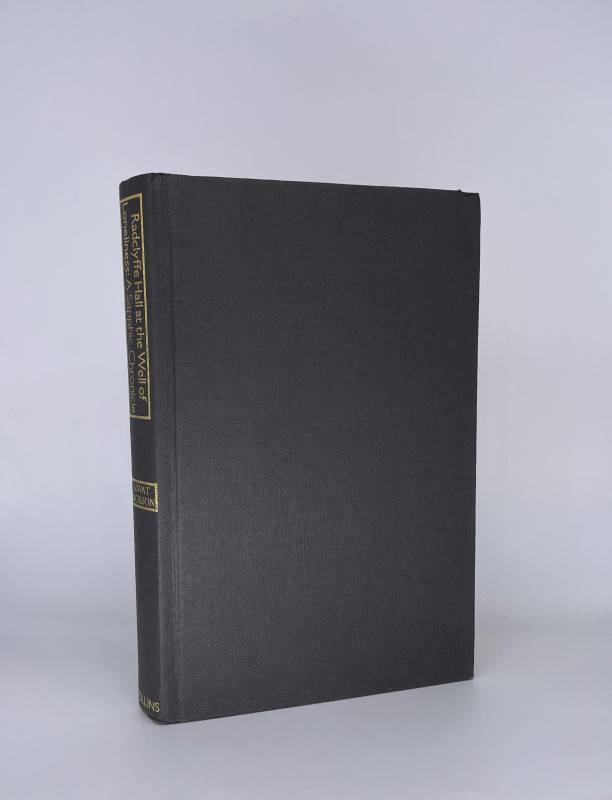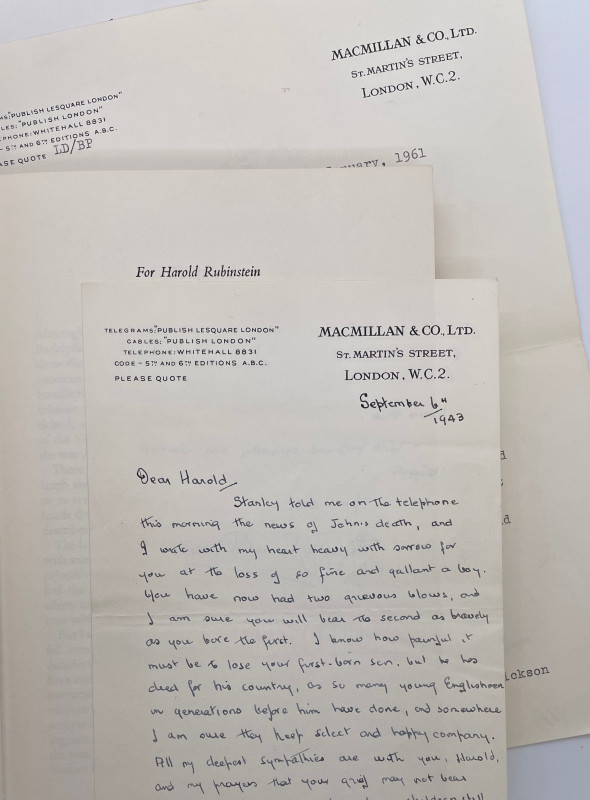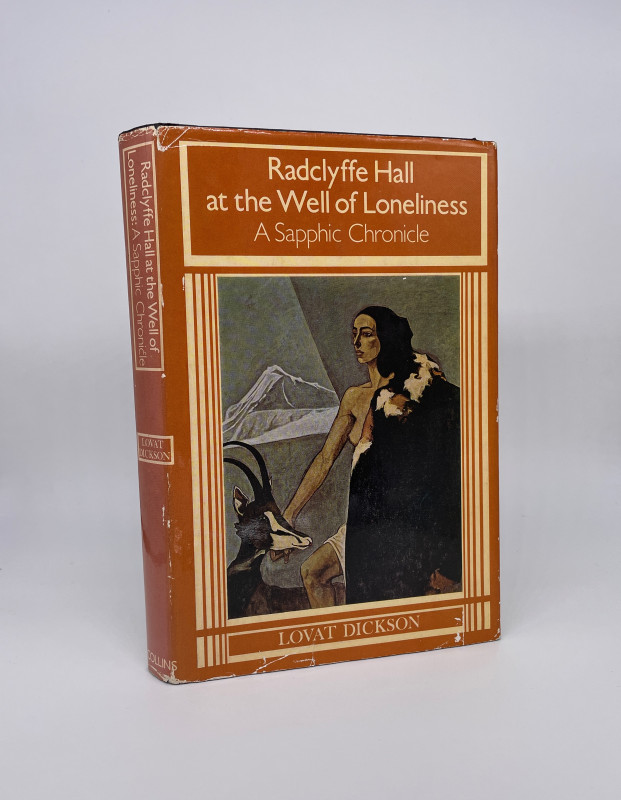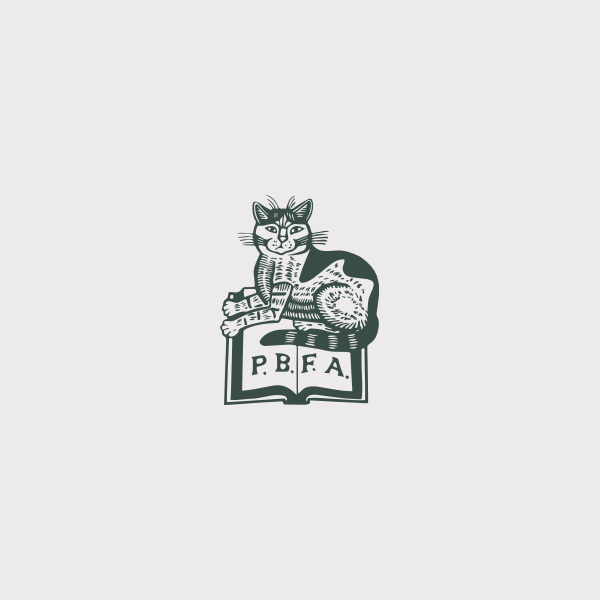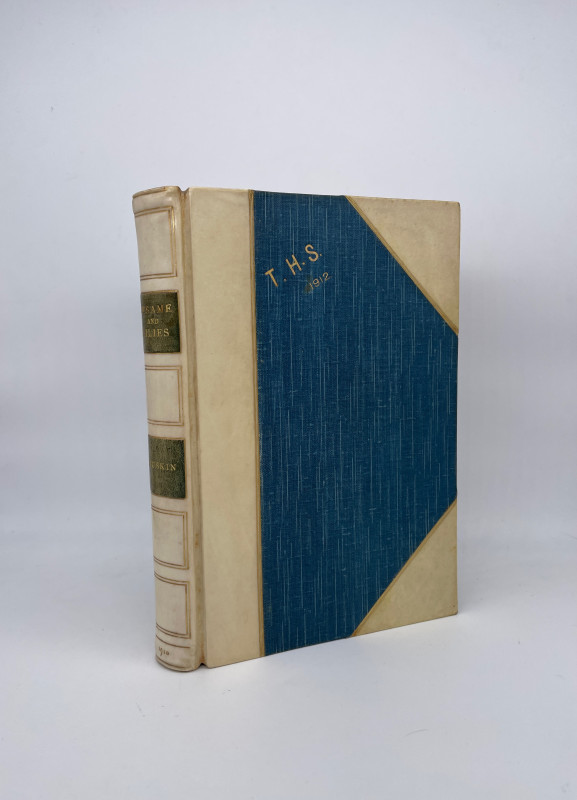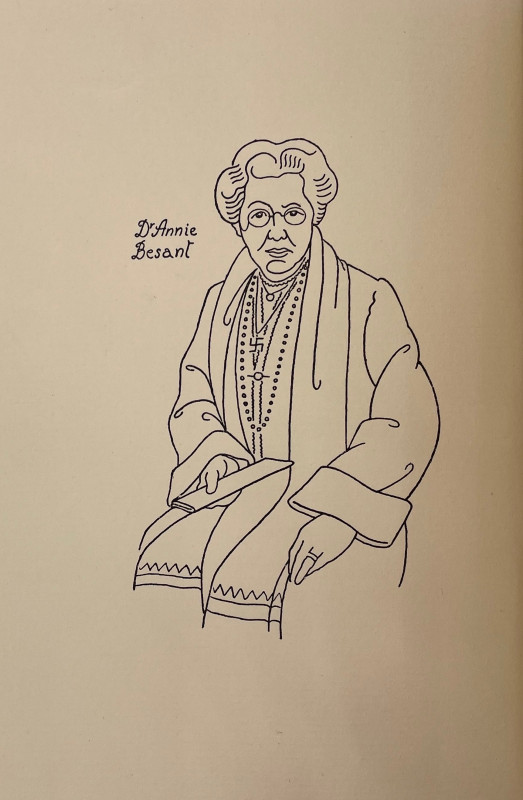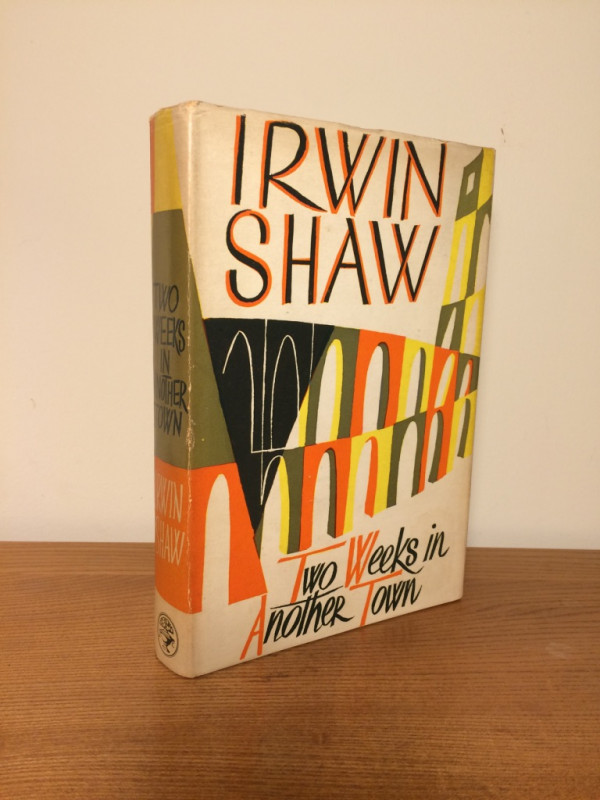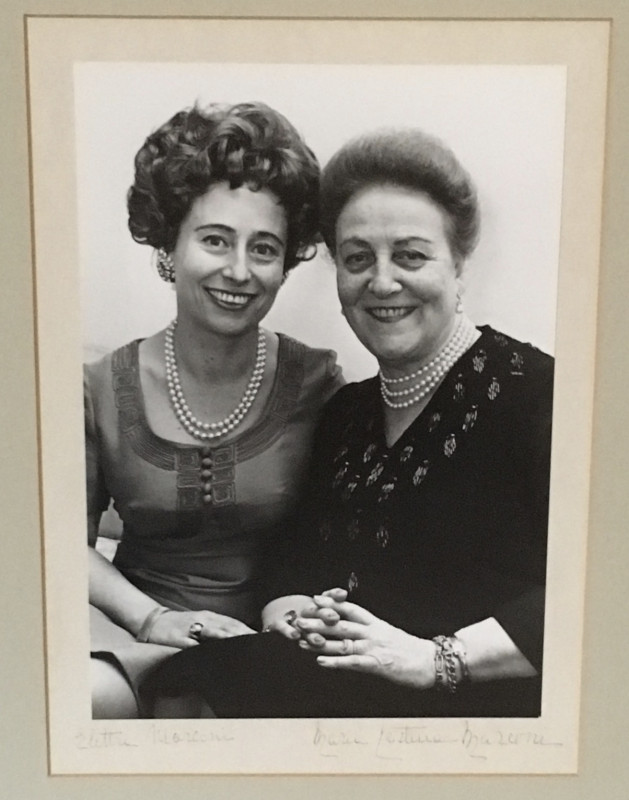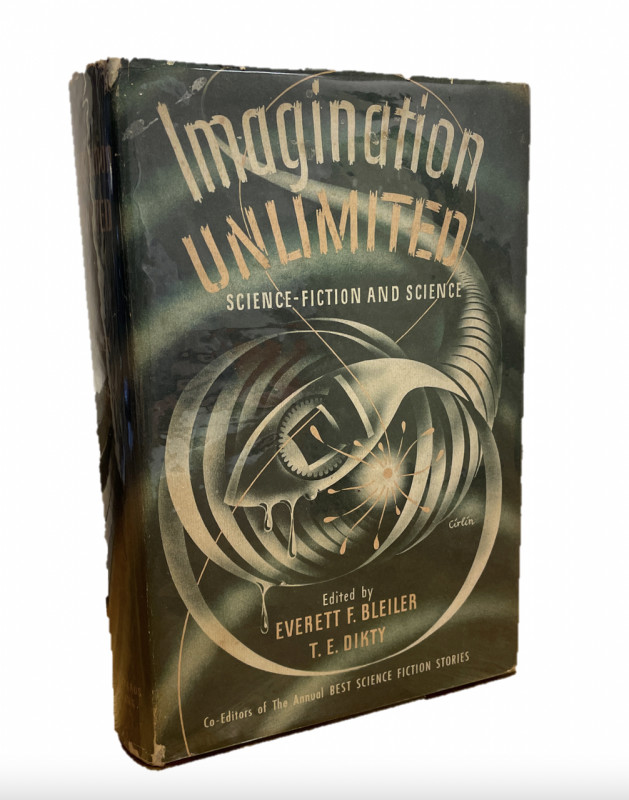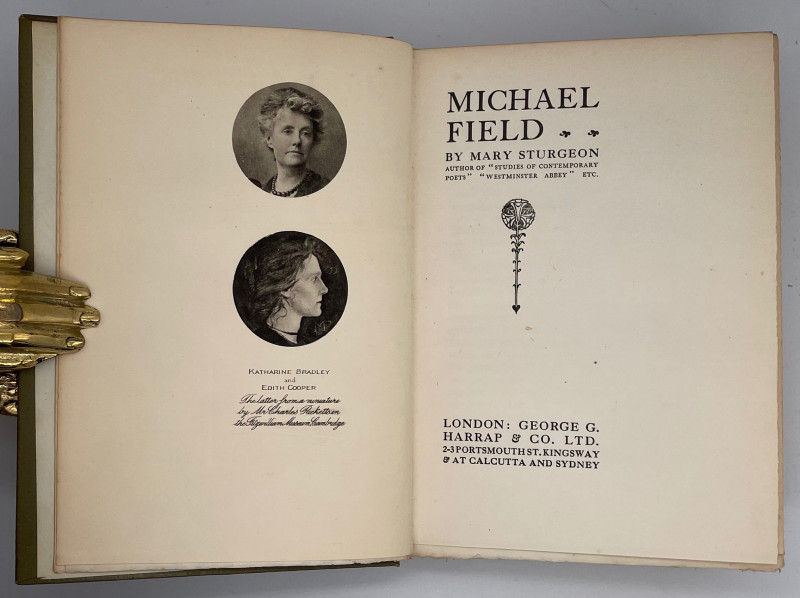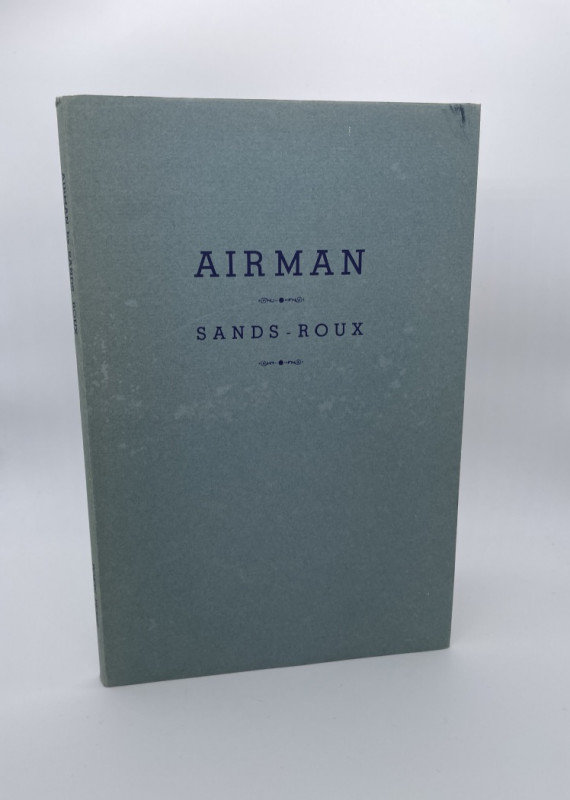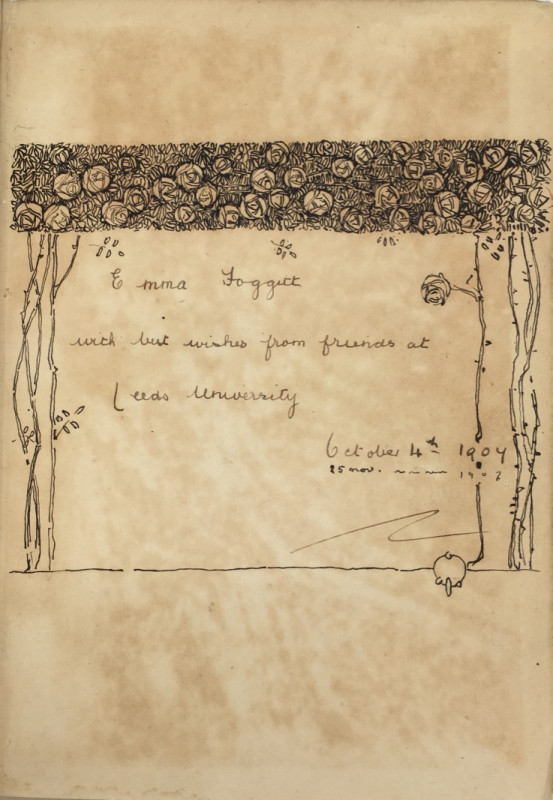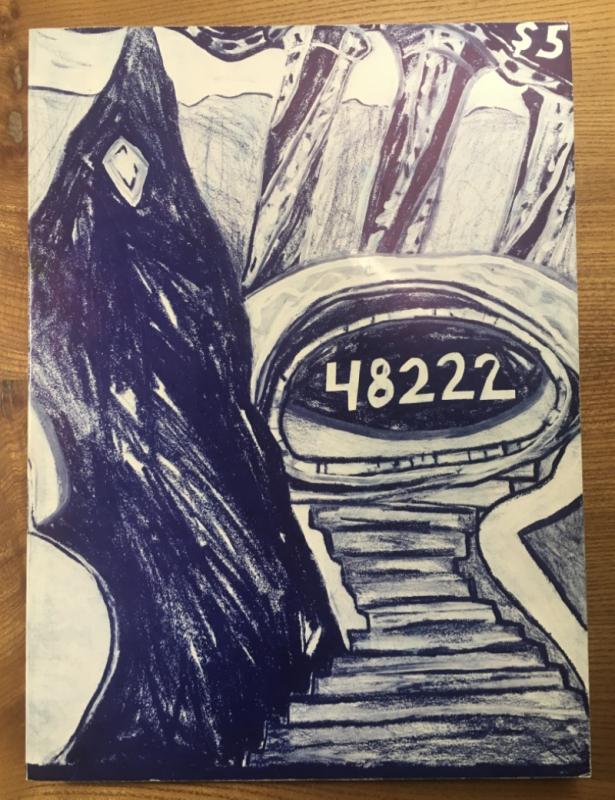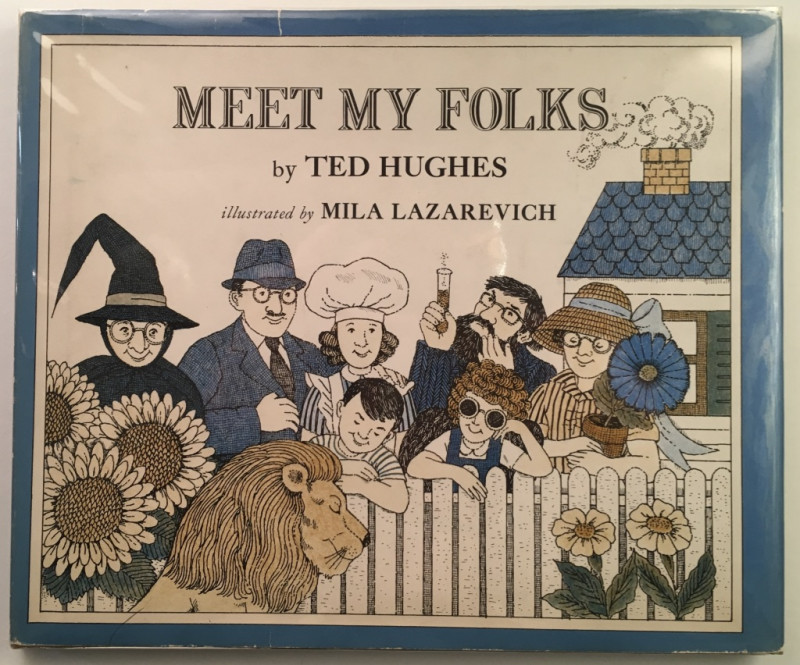The all-but dedication copy: Radclyffe Hall at the Well of Loneliness: A sapphic chronicle
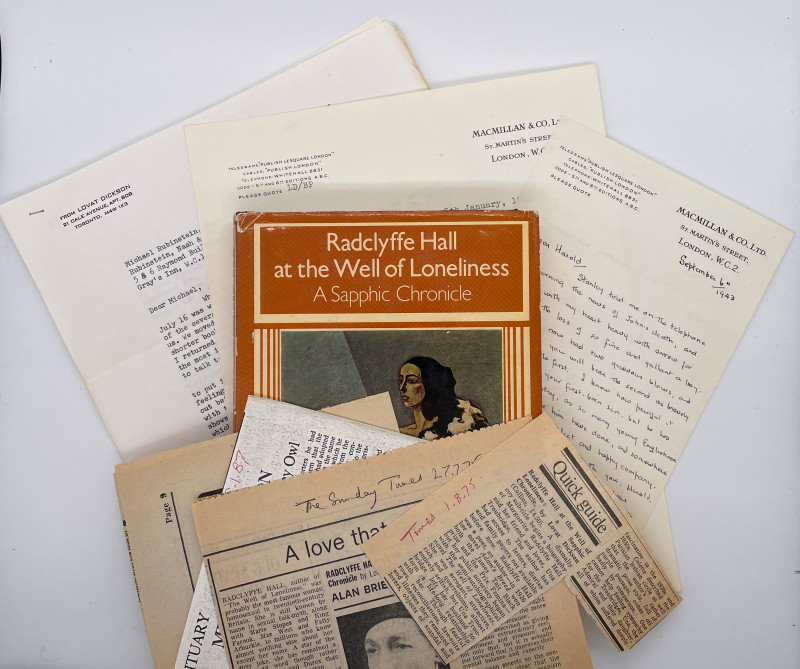
slide 2 of 4
slide 1 to 4 of 4
Book Description
FIRST EDITION, with one ALS and two TLS from Lovat Dickson to Michael and Harold Rubinstein, incl. Michael’s typed but unsigned reply, and review clippings, laid-in. 8vo, incl. b/w plates. Original black cloth, spine lettered in gilt. Extremities bruised, top fore-corner bumped, top edge spotted. Offsetting to endpapers (from letters and clippings), else, clean and tight. Four clippings and three letters laid in, comprising: two-page ALS from Lovat Dickson to Harold Rubinstein (6.9.1943), sending “all my deepest sympathies” following the death of the lawyer’s son John in 1943; one-page TLS from Dickson to Michael Rubinstein (5.1.1961) congratulating the lawyer for his speech at the Publishers Circle; and one-page TLS from Lovat Dickson to Michael Rubinstein (12.8.1975; nicked and creased on one edge) stapled to Rubinstein’s earlier unsigned two-page typed letter (16.7.1975) sharing his thoughts on Radclyffe Hall at the Well of Loneliness and Rubinstein’s brief one-page unsigned typed letter to Mrs Wilber at Collins, thanking her for sending him a copy of the biography (on Lovat Dickson’s request). In the original dust jacket, illustrated with Romaine Brooks’ ‘La Chassaresse,’ whose features “are probably based on those of Radclyffe Hall”: creasing and nicking to spine ends, a few closed tears and creasing.
Dealer Notes
The all-but dedication copy (Harold Rubinstein having died earlier in 1975) with important and affectionate correspondence laid in, relating to the two most in/famous (and by dint of their legal defences, interrelated) literary obscenity trials of the twentieth century. This copy of Lovat Dickson’s flawed biography of Radlyffe Hall holds a small cache of letters from the Canadian publisher to the father and son literary lawyers, Harold and Michael Rubinstein, including Lovat Dickson’s congratulations on the latter’s January 1961 speech at the Publishers Circle, presumably about his successful defence of Penguin Ltd, prosecuted under the Obscene Publications Act (1959) for publishing the unexpurgated text of D. H. Lawrence's Lady Chatterley's Lover (1960), two months earlier. While Lovat Dickson was “not in favour of this book being generally released [...] if I had been a juryman and you had been the defending counsel I should have altered my views [...] I do want to congratulate you”. The outcome of the trial “gave particular satisfaction to Rubinstein since his father's [same] defence [of literary merit] thirty years previously of The Well of Loneliness by Radclyffe Hall, a novel with lesbian themes, had failed.” (ODNB).
The biography’s printed dedication is “For Harold Rubinstein,” who had died that year: “I am quite certain that my father would have appreciated as much as I do now the dedication to him”, Michael Rubinstein wrote to Dickson in his July 1975 letter. Commissioned by Lady Una Troubridge to write a biography of Radclyffe Hall (known in close circles as John) following the author’s death in 1943, Lovat Dickson waited until six years after Troubridge’s own death in 1969 to fulfil his promise, when the sculptor’s diaries became available. In his typed (but unsigned) reply to Rubinstein in August 1975, Dickson ruminated on the failings of his biography, which received a “largely unfavourable reception, to put it mildly” (one reviewer thought it “designed to give the impression of something sold under the counter in rubber shops of the Thirties”) and responded to the lawyer’s considered and tactful letter: “I am impressed by your diagnosis of the frustration which John suffered. I agree now that it was not the barrenness of their love, but their perpetual consciousness of the deprivation of those physical attributes which would have matcher [sic] her psychology, and it was this that was responsible for their ‘queerness’ and flamboyancy”. Rubinstein had observed “that you have not only portrayed the principals, “warts and all” (though, – this is inevitable – not all the warts), but also recreated the ambience in which John and Una seemed to attitudinise so flamboyantly” and went on to discuss at length, frankly and in cod-psychological terms, his feelings and thoughts about the couple, including diagnosing that “John’s frustration was of a deeper kind [...] as if she were being castrated rather than crucified”. A brief but important correspondence, illuminating two close literary friendships.
Horatio ‘Rache’ Lovat Dickson (1902-1987) was a Scottish-Canadian publisher and director of Macmillan from 1941 until 1964. It seems Rubinstein, Nash & Co represented his interests too.
Harold Rubinstein (1891–1975) was an English solicitor and playwright. Though unsuccessful, his defence of Jonathan Cape, the publisher of Radclyffe Hall’s The Well of Loneliness, in the 1928 obscenity trial led to his appointment as legal adviser to a number of other British publishing houses. His son, Michael Rubinstein (1920–2001) followed in his father's footsteps, representing the leading publishing houses of the era, including Chatto & Windus, Sidgwick & Jackson, Hodder & Stoughton, Jonathan Cape, Victor Gollancz, and Penguin, and was known as “the book trade’s lawyer”. Most famously, he acted as defence counsel for Penguin in the 1960 obscenity trial, R vs Penguin Ltd: “while the prosecution floundered in a time warp of witnesses cheerfully asserting that they did not have to read the book to know it was obscene, and prosecuting counsel asking the jury whether they would want their maidservants or wives to read the book, Rubinstein concentrated on rallying the literary establishment to prove that its publication was justified in the public interest” (ODNB).
The biography’s printed dedication is “For Harold Rubinstein,” who had died that year: “I am quite certain that my father would have appreciated as much as I do now the dedication to him”, Michael Rubinstein wrote to Dickson in his July 1975 letter. Commissioned by Lady Una Troubridge to write a biography of Radclyffe Hall (known in close circles as John) following the author’s death in 1943, Lovat Dickson waited until six years after Troubridge’s own death in 1969 to fulfil his promise, when the sculptor’s diaries became available. In his typed (but unsigned) reply to Rubinstein in August 1975, Dickson ruminated on the failings of his biography, which received a “largely unfavourable reception, to put it mildly” (one reviewer thought it “designed to give the impression of something sold under the counter in rubber shops of the Thirties”) and responded to the lawyer’s considered and tactful letter: “I am impressed by your diagnosis of the frustration which John suffered. I agree now that it was not the barrenness of their love, but their perpetual consciousness of the deprivation of those physical attributes which would have matcher [sic] her psychology, and it was this that was responsible for their ‘queerness’ and flamboyancy”. Rubinstein had observed “that you have not only portrayed the principals, “warts and all” (though, – this is inevitable – not all the warts), but also recreated the ambience in which John and Una seemed to attitudinise so flamboyantly” and went on to discuss at length, frankly and in cod-psychological terms, his feelings and thoughts about the couple, including diagnosing that “John’s frustration was of a deeper kind [...] as if she were being castrated rather than crucified”. A brief but important correspondence, illuminating two close literary friendships.
Horatio ‘Rache’ Lovat Dickson (1902-1987) was a Scottish-Canadian publisher and director of Macmillan from 1941 until 1964. It seems Rubinstein, Nash & Co represented his interests too.
Harold Rubinstein (1891–1975) was an English solicitor and playwright. Though unsuccessful, his defence of Jonathan Cape, the publisher of Radclyffe Hall’s The Well of Loneliness, in the 1928 obscenity trial led to his appointment as legal adviser to a number of other British publishing houses. His son, Michael Rubinstein (1920–2001) followed in his father's footsteps, representing the leading publishing houses of the era, including Chatto & Windus, Sidgwick & Jackson, Hodder & Stoughton, Jonathan Cape, Victor Gollancz, and Penguin, and was known as “the book trade’s lawyer”. Most famously, he acted as defence counsel for Penguin in the 1960 obscenity trial, R vs Penguin Ltd: “while the prosecution floundered in a time warp of witnesses cheerfully asserting that they did not have to read the book to know it was obscene, and prosecuting counsel asking the jury whether they would want their maidservants or wives to read the book, Rubinstein concentrated on rallying the literary establishment to prove that its publication was justified in the public interest” (ODNB).
AuthorLOVAT DICKSON, [Rache]; [RUBINSTEIN, Michael]; [RUBINSTEIN, Harold]
Date1975
PublisherLondon and Toronto: Collins
ConditionVery good/ very good
Friends of the PBFA
For £10 get free entry to our fairs, updates from the PBFA and more.
Please email info@pbfa.org for more information
